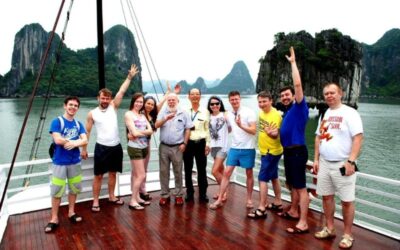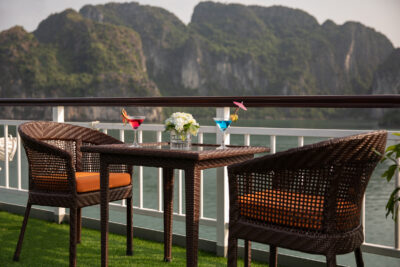Vietnam, a Southeast Asian gem nestled in picturesque landscapes, offers more than just stunning natural beauty and vibrant cities. It’s a land brimming with a deep, diverse, and unique **Vietnamese Culture**, a captivating tapestry woven from ancient **Vietnamese traditions**, significant historical influences from **China**, **France**, and neighbouring **Cambodia**, and the resilient spirit of its people. For travellers, especially those from India exploring Vietnam tours, understanding this rich **Vietnamese heritage** is key to unlocking a truly meaningful and unforgettable experience, connecting you to the very soul of this enchanting nation.
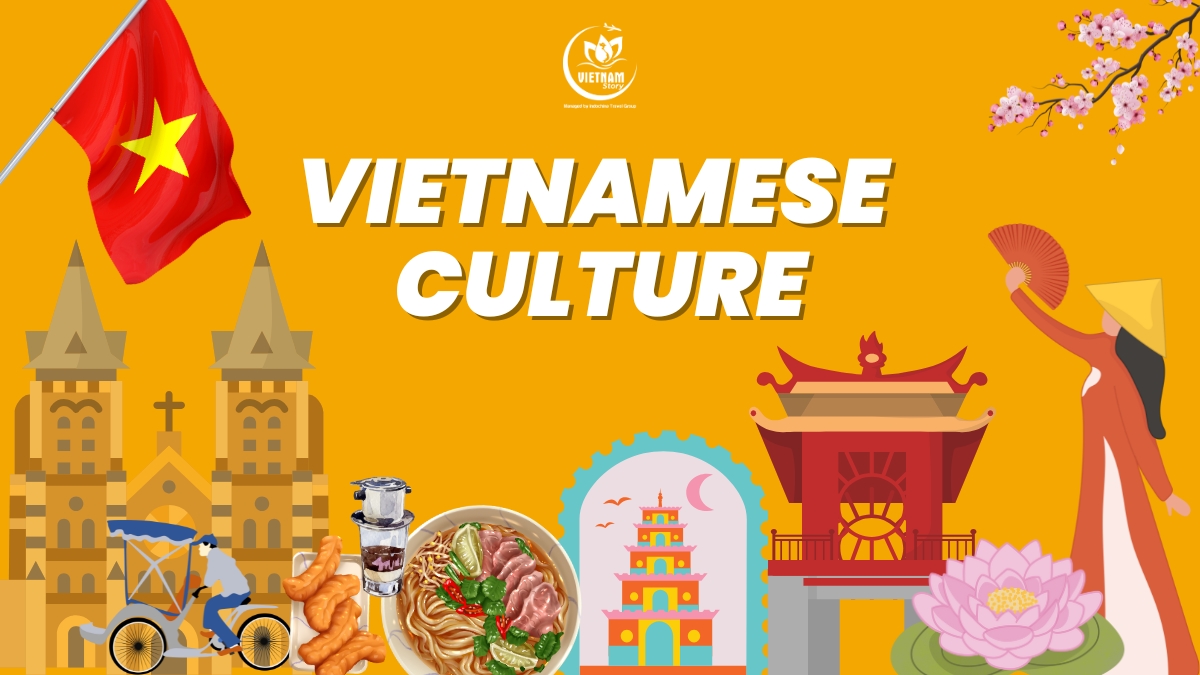
Family Life & Social Values: The Heartbeat of Vietnamese Society
At the core of **Vietnamese Culture** lies the family (**Gia đình**). Traditionally, **Vietnamese society** values multi-generational households, where three or four generations might live together, reflecting the view of “more children, more fortunes”. Influenced heavily by **Confucianism**, there’s a profound **respect for elders** (**Kính lão đắc thọ**) and a strong sense of filial piety, shaping the hierarchical structure and emphasizing collective well-being over individual desires. While modern life sees smaller family units, typically two generations, this deep respect and the tradition of caring for both the elderly and children remain paramount.
**Ancestor Worship** (**Thờ cúng tổ tiên**) is a vital spiritual practice deeply ingrained in **Vietnamese Culture**, coexisting alongside formal religions. Almost every home and many offices feature an ancestral altar where incense, food, and prayers are offered regularly, especially during festivals like **Tet Nguyen Dan**. This practice underscores the powerful connection between the living and the deceased, honoring lineage and seeking blessings from ancestors.
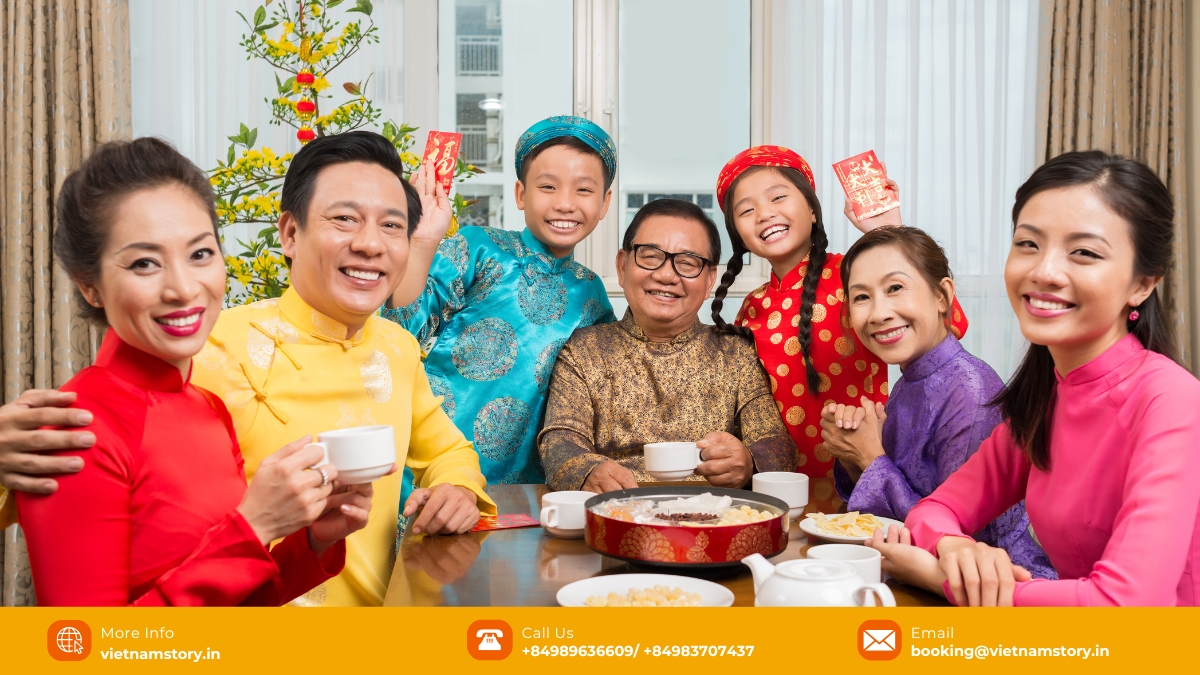
A Tapestry of Beliefs: Religion and Spirituality in Vietnam
The spiritual landscape of Vietnam is remarkably diverse, showcasing a fascinating blend of beliefs. While **Buddhism** is the most prominent religion, influencing daily life and visible in the numerous pagodas like Thein Mu Pagoda and Bai Dinh Pagoda, **Taoism** and **Confucianism** have also profoundly shaped **Vietnamese values**, ethics, and social order. You’ll find temples dedicated to these philosophies, such as the Temple of Literature in Hanoi.
Due to the **French colonialism** period, **Catholicism** also has a significant presence, with notable churches like the Notre-Dame Basilica in Ho Chi Minh City. A unique aspect of Vietnamese spirituality is the syncretic **Cao Dai** religion, which considers all religions equal and has a striking temple in Tay Ninh. Furthermore, folk beliefs rooted in animism persist, and even minority groups like the Hindu Chams have temples, such as the Mariamman Temple in Ho Chi Minh City, established by traders.
READ MORE: Religion in Vietnam: A journey through religious diversity and syncretism
Expressions of Heritage: Vietnamese Arts, Crafts, and Literature
The artistic expressions within **Vietnamese Culture** are rich and varied, reflecting its history and soul.
- Traditional Clothing: The elegant **Ao Dai**, once worn by both genders but now primarily a women’s tunic worn over trousers, is the most iconic symbol of Vietnamese attire, often seen during special occasions or as uniforms. The conical hat, **Non-La**, is another quintessential cultural symbol, practical for the climate and instantly recognizable. Many of Vietnam’s 54 ethnic groups also have their own distinct and colourful traditional costumes.
- Literature: **Vietnamese literature** boasts both folk traditions (legends, fairy tales passed down orally) and written literature, initially heavily influenced by Chinese characters (**Han**) and later using the unique Vietnamese script **Chu Nom**. Masterpieces like Nguyen Du’s “The Tale of Kieu” (**Truyen Kieu**) belong to this era. Modern literature, written in the Latin-based **Quoc Ngu** script, explores themes from romanticism to realism, often reflecting on war and daily life.
- Visual Arts: Vietnam is famous for its delicate **Silk Painting**, distinct for its use of colour and French influence. **Dong Ho Woodcut Painting**, a folk art from Bac Ninh province using natural colours on special paper, often depicts scenes of daily life and good omens, especially popular during Tet. **Calligraphy**, once an elite art, continues using Quoc Ngu script for auspicious occasions.
- Handicrafts: Traditional fine-art handicrafts showcase meticulous skill. **Ceramics**, notably from **Bat Trang** village near Hanoi, **Lacquerware**, intricate **Bamboo and Rattan weaving**, and **Silk Weaving** (like in Van Phuc village) are crafts with long histories, producing beautiful items popular both locally and internationally.
Performing Arts: Music, Dance, and Unique Traditions
The performing arts are vibrant elements of **Vietnamese Culture**:
- Music: Traditional **Vietnamese music** is diverse, ranging from folk music varying by region, to the sophisticated **Nha Nhac** (Hue Royal Court Music, a UNESCO Intangible Heritage), and intimate **Ca Tru** chamber music (also UNESCO recognized). Nearly 50 traditional instruments exist.
- Dance: Dance is integral, from ceremonial court dances to lively festival performances like the Lion Dance (meant to ward off evil spirits), Fan Dance, and Lotus Dance. Each ethnic group often has unique dance forms.
- Theatre: Vietnam offers unique theatrical forms like **Cheo** (popular satirical theatre from the North), **Tuong** or **Hat Boi** (classical scholarly theatre), and **Cai Luong** (reformed theatre from the South blending singing, music, and drama).
- Water Puppetry (**Mua Roi Nuoc**): This globally unique and enchanting art form, originating in the Red River Delta possibly during the Ly Dynasty, features colourful wooden puppets manipulated skillfully on a water stage, often depicting rural life and legends. It’s a must-see cultural performance.
- Martial Arts (**Vo Thuat**): While influenced by Chinese styles, Vietnamese martial arts have distinct characteristics, emphasizing spirituality (drawing from Buddhism and Taoism) and known for techniques like scissor kicks.
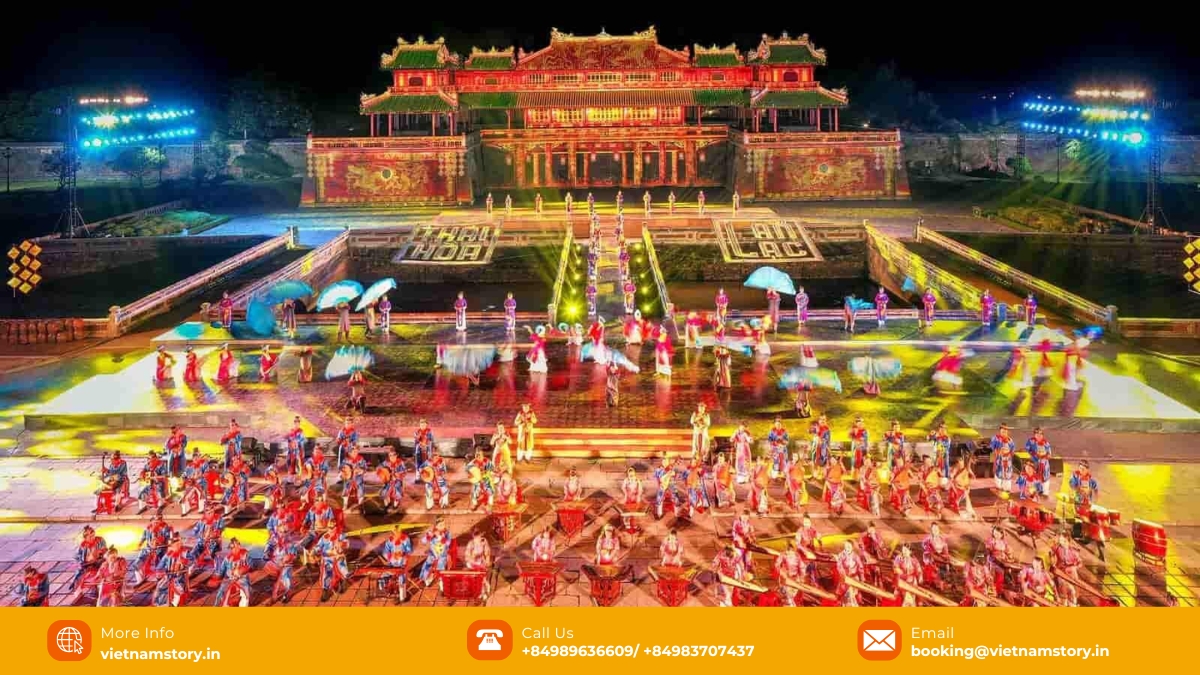
A Taste of Vietnam: Cuisine and Culinary Philosophy
Regarded as one of the world’s healthiest, **Vietnamese cuisine** is a vital part of its culture, focusing on balance (often reflecting the five elements philosophy), freshness, and minimal use of oil. Dishes often feature rice or noodles, fresh herbs, vegetables, and meats. The **French influence** is evident in the popularity of **Banh Mi** (baguette sandwiches) and pastries. Must-try dishes that embody **Vietnamese food** culture include **Pho** (noodle soup), **Goi Cuon** (fresh spring rolls), and **Com Tam** (broken rice).
Architecture: Reflecting History and Environment
**Vietnamese architecture** showcases a blend of indigenous styles and foreign influences. Folk architecture utilizes materials like wood, bamboo, and thatch, seen in rural homes and communal houses (**dinh**). Pagodas and temples feature intricate wooden structures and tiered roofs. Stone and brick were used for citadel gates (like the Ho Dynasty Citadel), towers (Thien Mu Pagoda tower), and notably, the ancient **Cham temples** found in Central Vietnam (like My Son Sanctuary). The **French colonial period** left a legacy of grand European-style buildings (Hanoi Opera House, Saigon Central Post Office), while Catholic churches also dot the landscape, sometimes incorporating Vietnamese motifs (Phat Diem Cathedral). The **Imperial City of Hue**, a UNESCO World Heritage site, represents the pinnacle of feudal-era architecture.
Festivals and Celebrations: Vibrancy Throughout the Year
**Vietnamese Culture** comes alive during its numerous festivals (**Lễ hội**). The most important is **Tet Nguyen Dan** (Lunar New Year), usually in late January or early February. It’s a time for family reunions, ancestor worship, visiting relatives, eating traditional foods like Banh Chung (sticky rice cake), and enjoying fireworks and lion dances. The first visitor (**xông đất**) is considered crucial for the year’s luck.
Other significant celebrations include:
- **Hung Kings’ Temple Festival** (10th day of the 3rd lunar month): Commemorates the legendary founders of the nation, a national holiday celebrated prominently in Phu Tho province.
- **Vu Lan Festival** (Full moon of the 7th lunar month): Often called the “Ghost Festival” or Vietnamese Mother’s Day, focusing on honoring deceased parents and ancestors, reflecting Buddhist traditions of filial piety.
- **Mid-Autumn Festival (**Tet Trung Thu**): Celebrated on the full moon of the 8th lunar month, primarily a festival for children, featuring lanterns (especially star lanterns), mooncakes, lion dances, and moon gazing.
Experiencing these festivals offers deep insight into **Vietnamese traditions** and community spirit.
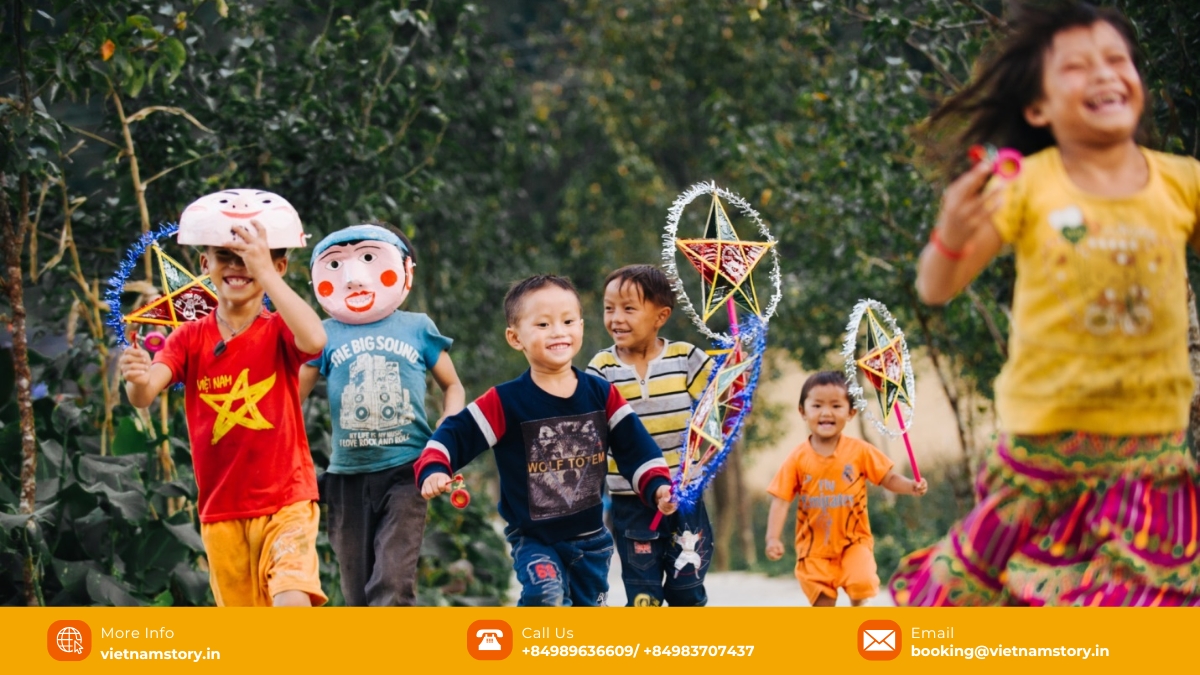
READ MORE: Vietnam’s Festive Calendar: A Journey Through Tradition and Celebration
Etiquette and Customs: Navigating Social Interactions Respectfully
Understanding basic **Vietnamese etiquette** is crucial for respectful travel, showing appreciation for the local **culture**.
- Greetings: A slight bow or nod is common. Use respectful titles like “Anh” (Mr. – older brother), “Chi” (Mrs./Ms. – older sister), “Em” (younger sibling), “Ông” (Mr. – grandfather age), “Bà” (Mrs. – grandmother age) followed by the first name. Handshakes are becoming more common, especially in business, but wait for the local to initiate.
- Dining: Wait for the eldest to start eating. Hold the rice bowl close to your mouth. It’s polite to try everything offered. Sharing dishes is standard practice. Avoid leaving chopsticks upright in the bowl (resembles incense for the dead).
- Visiting Homes/Temples: Remove your shoes before entering a home or sacred space. Dress modestly when visiting pagodas or temples (cover shoulders and knees).
- Gifts: Give and receive gifts with both hands. Small souvenirs from India or local delicacies are appreciated. Don’t be surprised if a gift isn’t opened immediately.
- General Conduct: Politeness, humility, and avoiding public displays of strong emotion (anger or excessive affection) are valued. Avoid pointing directly at people or objects with your finger; use an open hand instead. Bargaining is common in markets; approach it politely.
Conclusion: Embracing the Enduring Spirit of Vietnamese Culture
**Vietnamese Culture** is a dynamic and deeply fascinating blend of ancient **traditions**, historical influences, artistic brilliance, strong family values, and resilient spirit. From the elegance of the **Ao Dai** and the unique **Water Puppetry** performances to the spiritual depth of **Ancestor Worship** and the flavours of **Pho**, it offers countless avenues for exploration.
For travellers from India embarking on a Vietnam tour, taking the time to learn about and respect these customs and traditions will not only prevent misunderstandings but will significantly enrich your journey. Engage with the local **Vietnamese heritage**, savour the **Vietnamese cuisine**, witness the vibrant festivals, and appreciate the artistry. By doing so, you’ll connect more deeply with the heart and soul of Vietnam and create memories that last a lifetime. Embrace the warmth of Vietnamese hospitality and let the captivating **Vietnamese Culture** enchant you.






